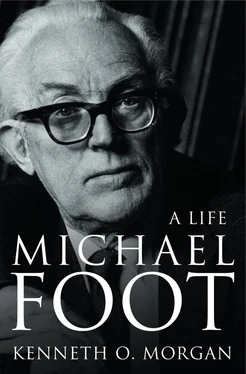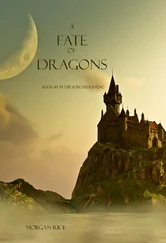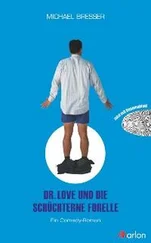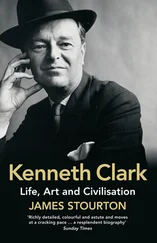4 LOYAL OPPOSITIONIST (1945–1951)
Like the legendary shot fired at the bridge at Concord, Massachusetts, that heralded the American War of Independence, ‘the Election rings around the World!’, Foot excitedly told the readers of the Daily Herald . 1 Labour’s socialist programme, as announced in the King’s Speech, was ‘the Boldest Adventure, the Greatest Crusade’. Labour had become the nation. Historical analogies with past revolutionaries from Cromwell to Garibaldi poured from his pen. In Westminster the new soi-disant revolutionaries, the 393 (shortly 394) Labour MPs, were sworn in immediately. Will Griffiths led a chorus of ‘The Red Flag’ in the Commons in which Foot joined enthusiastically. From the very start, dramatic events unfolded: the next four weeks saw the Potsdam conference, the dropping of atomic bombs on Hiroshima and Nagasaki, VJ-Day marking the end of the war in Japan on 15 August, the abrupt ending of Lend-Lease by the Americans on 21 August, the new committee on the use of atomic energy, all of them to colour Foot’s views fundamentally for the remainder of his career. He felt thoroughly at home in his new surroundings. He enjoyed the buzz in the lobbies as a great progressive programme was launched – a National Health Service, nationalization of the mines, independence for India, all part of what the new Chancellor Hugh Dalton called ‘the flowing tide’ of socialism. Foot also liked the parliamentary atmosphere, the chatter and conspiracy in smoking room and tea room, the ready access to Fleet Street friends. He enjoyed too some of the extra-mural activities, especially the group of MPs who played chess. Leslie Hale was his favoured opponent. Foot was recognized as being amongst the best parliamentary players, though it was agreed that the strongest was Julius Silverman. Others of note were Douglas Jay, Reginald Paget, Maurice Edelman and Maurice Orbach, with Jim Callaghan another, less talented, enthusiast. The world’s dominant players were Russian, and Foot met several grandmasters when an international tournament was held in London in 1946.
Best of all, Foot made attractive new friends amongst the Labour backbenchers. All of them, predictably, were on the left, paid-up members of the awkward squad. Four were particularly important for him. Richard Crossman was a didactic former Oxford philosophy don who had written on Plato and Socrates. Foot first met him when Crossman arranged a social event at the Savoy Grill after Parliament assembled. It was Palestine that first drew them together, but they remained intellectual comrades from then on, even posthumously, when Foot was involved in the publication of Crossman’s diaries. Another long-term ally was Ian Mikardo, a bright but prickly left-winger who, unusually for Labour, was a business consultant. He was of rabbinical Jewish background and had strong views on Palestine. It was he who had moved the famous Reading resolution committing the party firmly to wholesale nationalization at party conference in December 1944, when Foot first met him. Mikardo later described his friendship with Foot as ‘one of the most precious things in my life’. Tom Driberg was an old colleague on Beaverbrook newspapers, writer of the ‘William Hickey’ column. Foot remained tolerant of his ex-Communism and particularly conspicuous homosexual exploits, which almost led to his prosecution, and reacted loyally when journalists asserted that Driberg had been a double agent, both for the KGB and MI5. There is no doubt that many of his contemporaries placed less trust in Driberg’s character and reliability than Foot did. 2
Perhaps Foot’s most congenial friend was J. P. W. Mallalieu, commonly known as ‘Curly’, a man of many talents. He had been a fine sportsman at Cheltenham College and Oxford, and won a rugby blue as a stand-off half He had an exciting war in the navy, and published a best-selling book about it, Very Ordinary Seaman . He wrote a financial column in the New Statesman , ‘Other People’s Money’, and a weekly parliamentary sketch in Tribune . He became a great admirer of Nye Bevan, while his friendship with Foot was such that for a few months in 1953 Michael and Jill lived with him and his family. However, Mallalieu never supported CND, and actually became a navy minister under Harold Wilson in 1964, which put him beyond the pale for many on the left. Foot’s memories of him, however, were always affectionate. As a sign of it he gave his daughter Ann (later Baroness) Mallalieu a present of a book on fox-hunting, a strong enthusiasm of hers even though Foot detested the pastime. 3
These men found other left-wing comrades early on in the new Parliament. Others with whom Foot had close relations were Harold Davies, Leslie Hale, Stephen Swingler, Will Griffiths, Hugh Delargy and the playwright Benn Levy (along with his beautiful American actress wife, Constance Cummings). Along with them was a friend of far longer standing, Barbara Castle, in the House as MP for Blackburn and the only one of them who had a government job, as PPS for Cripps at the Board of Trade. In his memoirs Mikardo lists some others in their circle: the Australian lawyer and keen European federalist R. W. G. (‘Kim’) Mackay, George Wigg, Donald Bruce and Wing-Commander Ernest Millington, who had been returned as a Common Wealth candidate at the election but then joined Labour. Occasionally they were joined by mavericks like Woodrow Wyatt, or even figures on the party right like the independent-minded barrister R. T. Paget, who simply enjoyed their company on social grounds. In addition, there were one or two incorrigible rebels who flitted in and out but really pursued their own path, like Sydney Silverman, a disputatious Jewish lawyer, and S. O. Davies, ex-miner and Marxist Welsh nationalist who sat for Keir Hardie’s old seat of Merthyr Tydfil and like him supported Welsh home rule. In 1946 came another maverick, Emrys Hughes, Keir Hardie’s Welsh son-in-law who sat for South Ayrshire. He too was almost impossible to tie down.
This distinctly miscellaneous group of around twenty or so formed an identifiable collection of dissenters. Michael Foot was one of its most eminent members, and the most highly esteemed as a communicator. It is difficult to discern any wider influence on the labour movement. Only Crossman attempted to write a statement of political philosophy. Their socialism came across most clearly in their view of foreign policy. Most of them were middle-class journalists: trade unionists (other than members of the NUJ) were very rare. Until the growth of unrest over the anti-Soviet drift of Bevin’s foreign policy the following spring, they were little more than just kindred souls, closet critics in the tea room and the bar. They all favoured strongly socialist policies at home, which meant planning, controls and an uncompromising programme of public ownership of the means of production and the redistribution of wealth. But in its first two years, the government itself seemed to pursue this policy with such zest that there was little to complain about. It was really in the more difficult period of Morrisonian ‘consolidation’ in 1948–50, when the nationalizations effectively came to an end, that complaints arose. Nor did Commonwealth or colonial policy generate any great dissent. The left could justify everything, from the transfer of power in India to an unsuccessful attempt to grow groundnuts in Tanganyika. The major areas of criticism almost entirely involved foreign relations, and were largely offshoots of the early stages of the Cold War. To this should be added concern over Palestine, since almost all of them were passionately pro-Jewish and totally opposed to Bevin’s policy.
The members of the group were all instinctively oppositionists. Not one was seriously considered for government office, nor did they expect (or perhaps want) to be. Men like Mikardo or Driberg had backbench mindsets then and always. Until Bevan’s resignation as Minister of Health in April 1951, their influence upon either government or party policy was minimal, and in inverse proportion to their prominence as journalists. To call them ‘Labour’s Conscience’, as one text has done, seems remarkably inflated. 4 Foot himself, a highly individual journalist with a past record of campaigns for the Socialist League and employment by Lord Beaverbrook, was considered unreliable, a gadfly, a meteor, the ultimate symbol of a party of protest, not a party of power. His activity was largely focused outside Parliament. The prospect of front-bench status seemed at this stage quite bizarre.
Читать дальше












